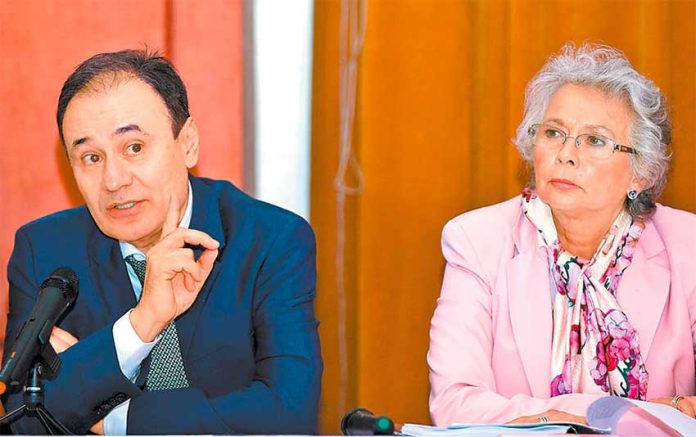Women, children and youths forcibly recruited by organized crime would be the main focus of an amnesty law that could be adopted by Mexico’s next federal government.
The incoming administration’s security team today begins the process of developing the proposed law, whose objective is to reduce spiraling levels of violence.
Olga Sánchez Cordero and Alfonso Durazo, whom president-elect Andrés Manuel López Obrador has announced he will nominate as his interior and public security secretaries, told a press conference yesterday that they would summon experts and victims of violence to participate in citizens’ forums at which legislative proposals will be discussed.
They stressed that any amnesty law that is adopted would only apply to those who have been coerced into participating in criminal activities and that anyone who has been convicted of committing a violent crime would not be eligible.
Both Sánchez and Durazo also insisted that granting amnesty would not be at the discretion of the president and that legislation would have to be approved by Congress.
An amnesty law would also be subject to restrictions contained in international agreements that Mexico has signed, they said.
Loretta Ortiz, López Obrador’s human rights adviser and a member of his transition team, said the amnesty law would not apply to high-impact crimes such as forced disappearances, homicide, human trafficking, sexual assault and extortion.
“Boys, girls, young people and women coopted by organized crime could be subject to this amnesty, as well as farmers who have been drug producers and haven’t committed any violent crime, women known as [drug] mules, those who are imprisoned for political crimes . . . and also women who commit crimes out of love, who carry drugs or weapons to support their partner,” she said.
Sánchez Cordero said the president-elect had instructed the proposed security cabinet to “use all the legal instruments at our disposal for peace and justice” and that even pardons could be granted in “very special cases.”
Durazo said the amnesty law would be part of a “Mexican recipe for peace,” adding that it would help to bring young people who have been pressured into criminal activity or turned to it out of economic necessity into the legal economy.
“There could be hundreds of thousands of youth working as lookouts for organized crime,” he said. “We have to give them a way out.”
Durazo added that López Obrador had indicated he is willing to scrap the amnesty idea if victims of crime don’t support it because “since the campaign he said that he wouldn’t do it without the consent of the victims.”
He also stressed that an amnesty law would only be one of 10 main aspects of an overall security strategy aimed at returning peace to Mexico.
The incoming administration also plans to gradually withdraw the military from public security duties on the nation’s streets.
Durazo reiterated yesterday that better training for police and improving their pay and conditions will be a priority for the López Obrador-led administration.
The president-elect was attacked by his opponents during the campaign period for his amnesty idea but it didn’t stop him from winning a landslide victory in last Sunday’s election.
Yesterday, he told reporters that the amnesty plan is “about a process to achieve peace, but not with impositions, but rather convincing, looking for consensus.”
The objective, López Obrador said, is to “finish the predominating violence that sadly imperils the country.”
Source: Milenio (sp), Associated Press (en)
